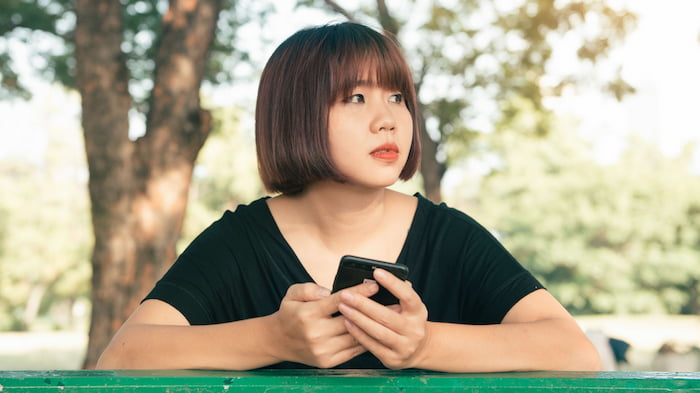Cyber-bullying is the act of using the Internet or digital devices with the intent of hurting a person or group.
Cyber-bullying is one of the main dangers of having access to the online world. A 2013 survey by TOUCH Community Services found that one in four secondary school students admitted to bullying their classmates online, and one in three were victims of cyber-bullying. One in five primary school children also reported being cyber-bullied. The types of cyber-bullying reported were very varied, from sending someone mean messages anonymously to ‘defacing’ their photo and spreading it online.
In Singapore, cases of cyber-bullying have increased over time since more kids and teenagers have their own phones and social media accounts, giving them a greater opportunity to cyber-bully. This is very worrying since the impact of cyber-bullying can as real as bullying in the offline world: people feel hurt, lonely, and embarrassed, and might even become so scared of school that they try to avoid it – which has a real impact on their grades and social lives. Although it can be hard to monitor such behaviour online, as young people, you have the power to protect yourself and your friends online, and report such activity when you see it.
What are examples of cyber-bullying?
- Hurtful messages, texts, or emails
- Embarrassing photos or videos
- Rumours or gossip spread online
- Hacking someone’s social media and sending out hurtful or embarrassing messages while pretending to be them
- Excluding someone online
- Spreading false rumours about someone online
- Ganging up on someone on an online game
- Tricking someone into sharing personal information, then sharing it with many people
I’m being cyber-bullied. What can I do?
- Don’t blame yourself: remember that you did not ask to be bullied, and it’s not your fault
- Don’t respond or retaliate to the cyber-bully: they might use it against you
- Save the evidence: keep the text messages, save the photos, take screenshots of the chat, and print them out
- Tell someone you trust: like a parent, teacher, friend, or an online counsellor
- Block the bully: mobile phones and most social networking sites have the option to block someone
- Report the bully: most social networking sites have the option to report content you find abusive – this might be messages they posted or even intimate photos of you they have shared
- Protect yourself online: keep your passwords private and set your settings on social media sites to private
- Change your social media accounts: if you keep getting strangers asking to follow/friend you, delete your existing account and create it a new one
I think my friend is being cyber-bullied. How can I know?
- Changes in their personality, like if they suddenly become more withdrawn, angry, or anxious
- School grades suffering
- Sudden lack of desire to go to school or do things that they used to enjoy
- Upset after using their phone or going online
- Becoming very secretive about what they’re doing online
- Stops using their phone or computer, or uses it a lot more than normal
- Getting lots of new notifications on their phone or followers online that they can’t explain
- Deleting their social media accounts
My friend is being cyber-bullied. What can I do?
- Support your friend: speak to your friend personally so that they know they are not alone, and remind them that they are not to blame
- Ask them what they want: cyber-bullying can make someone feel like they don’t have any power, and asking them questions about what they want to do can make them feel like they have control
- Help them talk to someone they trust: report the bullying to someone who can help, like a parent or teacher
- Reach out for help: if your friend does not want help, you can always anonymously ask the school counsellor or another trusted adult for help
- Save the evidence: encourage your friend to save the evidence, or if they are on a public platform, save them yourself – screenshot the posts, photos, or chats and print them out
- Speak up: if you feel safe and confident doing so, call out the bully for their hurtful actions and say, “this isn’t funny, take down the post!”
- Report the cyber-bullying: most social media platforms give the option to report offensive material, including mean or hurtful messages, so if the material is public, you can report and request for it to be taken down
The cyber-bullying content is still online!
- Report all hurtful or embarrassing messages, posts, photos, and videos on the social media site that it happened on: the social media sites should remove these posts within 2 days
- Save the evidence of the cyber-bullying: save messages, keep screenshots of chats, and download photos and videos for evidence if you later make a complaint
- Block the cyber-bully: block them on all sites that they can contact you so that, while the material is being removed, they cannot reach you
- Report the cyber-bully to the authorities: speak to a parent or teacher about the option of making a police report or talking to a lawyer
I think I need professional help. Where can I go?
There are several organisations that can help you if the cyber-bullying you face is severe or involves sexual harassment of any kind. Here are some:
- Coalition Against Bullying for Children and Youth (CABCY) – for advice on cyber-bullying
Phone: 6223 3122
Email: ask@cabcy.org.sg - TOUCH Cyber Wellness – for help on a range of cyber wellness issues
Phone: 1800 377 2252
Email: cyberwellness@touch.org.sg - Fei Yue Community Services – for practical and emotional guidance for youth
Phone: 6422 1599
Email: project180@fycs.org - Help123 – hotline for youth cyber wellness issues
Phone: 1800 6123 123
Email: hello@help123.sg - Tinkle Friend – hotline for primary-school aged children
Phone: 1800 2744 788 - Samaritans of Singapore – for emotional support for suicide-related issues
Phone: 1800 221 4444
Email: pat@sos.org.sg
Website: https://www.sos.org.sg - Community Justice Centre – for practical and emotional support, and in-person legal advice
Phone: 6557 4100
Email: help@cjc.org.sg
Website: https://cjc.org.sg - The Legal Aid Bureau (LAB) – for legal services for Singaporeans and PRs
Phone: 1800 225 5529
Website: https://lab.mlaw.gov.sg/ - AWARE (Association of Women for Action and Research) – for counselling and legal advice for women
Phone: 1800 777 5555
Email: helpline@aware.org.sg
Website: http://aware.org.sg
Could I be a cyber-bully?
- Congratulate yourself for making it to this page at all: it means you have reflected on your actions and realised that you could have said or posted something hurtful, which is a good first step
- Think about why you did it: if you sent a mean message or posted an embarrassing photo, think about why you did it – did something happen to make you feel so angry or upset?
- Talk to someone you trust: be it your parent or the school counsellor, talk to them about what you’ve done so that they can help you through it
- Try and take back what you’ve done: if possible, delete the posts or images – although this content might have already been reposted or shared, which is beyond your control, you do have the power to stop it from spreading further through your accounts
- Apologise: this is a hard one, but reach out to the person you hurt and tell them that you’re sorry, and that you promise not to do it again (then keep that promise!)
- Use the ‘one-minute rule’: in future, if you want to do something, give yourself one minute before clicking post, share, or forward, to consider the repercussions of your actions













